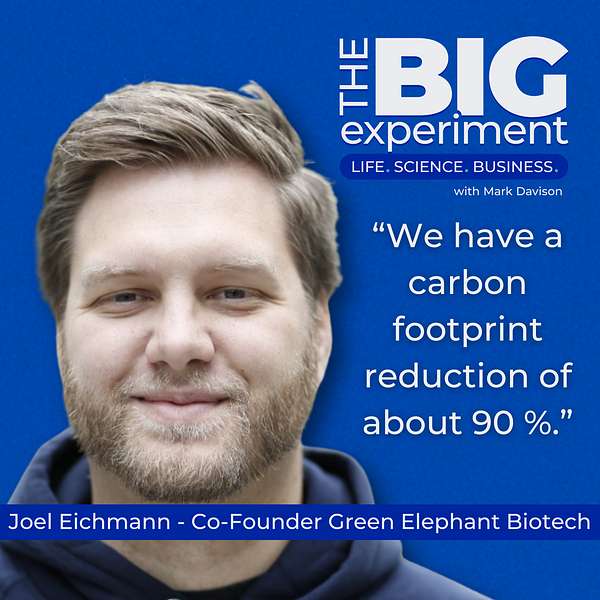
The Big Experiment
Ever wondered how technology start-ups, well, start-up? For most founder entrepreneurs, it is the biggest experiment they'll ever run. Like most experiments, the result isn't known beforehand and it often doesn't work first time. On a bigger scale, how do big tech companies turn innovative science into profit?
Mark Davison interviews founder scientists, executives, investors, communicators, and others in the technology start-up and corporate science ecosystems.
Learn how great ideas turned into thriving businesses (or not) from those who made it happen (or didn't). Get business tips, lessons learned, and life lessons straight from the people who know.
Inspiring, disastrous, funny: hear what life in a science-driven company is really like.
Straight-talking, no nonsense, but conversational style. All technical content is explained for the non-specialist - you don't need a PhD or fluency in jargon and technobabble.
The Big Experiment
Joel Eichmann: Making cell biology efficient and sustainable
It is a guilty secret that the pharma and biotech industry has a big carbon footprint. Single-use plastics are a huge problem. Sensitive experiments need clean, sterile labware. This has often meant using virgin plastic with little or no recycling or reuse. Innovative approaches are needed to reduce plastic consumption in the lab.
How bad is bad? On average, cell biologists produce several kg of plastic waste, each, per day. These include pipettes, plastic trays for cell growth, various wrappers, membranes, packaging, etc. Formats and workflows have changed, as some tasks have been automated for robots, but the plastic products used in those processes haven't changed much in decades. The world can't keep making and incinerating single-use plastics, even for medical research.
In this episode I am joined by someone who is looking for a better way, Dr Joel Eichmann, CEO and co-founder of Green Elephant Biotech. How can cell growth yields be improved by better growth vessel design, so that you can grow more cells with less plastic? How can fossil fuel use be minimised by using plant-derived plastics for the labware? Can we combine those approaches for a double win?
How to turn these technical ideas into a growing, sustainable business that provides meaningful jobs and profits?
We discuss all these challenges and more.
“We can generate a carbon footprint reduction of about 90%” – Joel Eichmann
You’ll hear about:
01:56 – How Joel got to where he is today
03:59 – The core question Joel was asking
06:17 – Figuring out how to do things differently
10:28 – Getting from the idea to the company
16:06 – The benefits of using plant based materials
24:31 – The traction Joel is getting with scientists
28:09 – The life cycle of the products
30:43 – The next stage of the business
Follow Joel:
LinkedIn - https://www.linkedin.com/in/joel-eichmann/
Green Elephant Biotech - https://www.greenelephantbiotech.com/
Connect with Me:
LinkedIn: https://www.linkedin.com/in/markdavison100/
Grant Instruments: https://www.grantinstruments.com/
Grant Instruments on LinkedIn: https://www.linkedin.com/company/grant-instruments-cambridge-ltd/
